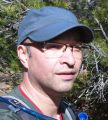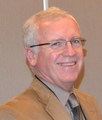Theme for Panel & Town-Hall Segment at Nanaimo Water Symposium: Community Empowerment & Sustainable Partnerships with Local Government

“Until we stabilize the composition of the Earth’s atmosphere, phenomena such as atmospheric rivers are likely to cause greater flooding and related economic damage widely – forever making sustainability and adaptive resilience a moving target. So what will we do?” asks Bob Sandford. Adapting to climate change requires a paradigm-shift in how we perceive watershed worth and service land. The audience will be asked to reflect on this question: How will communities ‘get it right’ through collaboration as land develops and redevelops?










